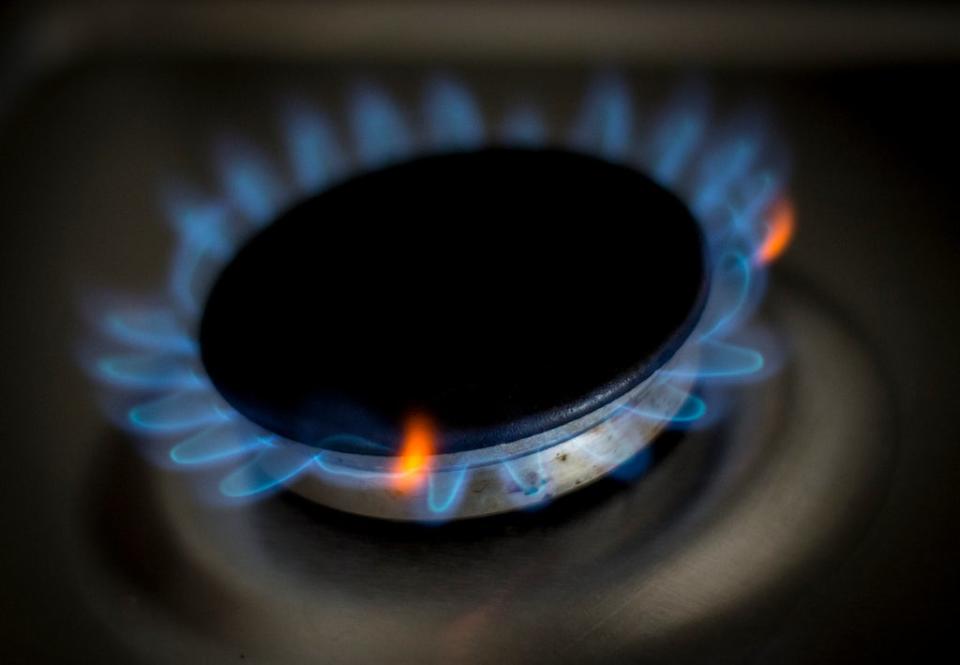Ex-Centrica boss Sam Laidlaw: UK still needs oil and gas as it pushes to net zero

While warmer temperatures across the UK meant that, for many, a white Christmas this year was found only in greeting cards, they did provide a respite from surging gas prices.
Driven higher in recent months by this year’s cold winter, a lack of gas storage, increasing demand from Asia and lower output from windfarms, UK gas prices have now retreated to around 210 pence per therm, from around 460 p/th in the week before Christmas.
Such a fall in wholesale prices would normally be welcome news for energy consumers, but with prices starting this year at just 60 p/th, there is understandable concern about the impact on bill payers when the energy price cap next gets reviewed.
These problems may be symptoms of the current market, but their cause can be traced back to repeated failures of energy policy that have left the UK over-exposed to global markets and less attractive for investors.
Although we have seen a welcome growth in renewables over the past decade, the UK is still reliant on gas and oil to keep us warm, keep the lights on and keep people moving. Together they account for almost 75% of our energy needs and will be crucial for decades to come.
So the choice the country faces is whether to meet that demand from domestic sources that are lower carbon, lower cost and more secure, or expose consumers to higher carbon, higher cost and less secure imported supplies.
The latter would not only increase global carbon emissions, but would also result in the UK losing the significant social and economic benefits the sector brings. And once investment leaves these shores, it is very difficult to attract it back.
This was evidenced in 2011 when the sudden tax increase on producers saw North Sea production collapse by nearly a fifth, leaving UK consumers exposed to volatile foreign energy markets to meet demand – a problem we contend with still.
Investors fled the North Sea and many have not returned. This left infrastructure stranded and pushed capital expenditure overseas to more attractive investment destinations – for both oil and gas and low carbon developments.
Low carbon developments will need to use existing infrastructure – from depleted gas reservoirs to transportation networks and storage facilities. The North Sea has these in abundance and energy companies, including Neptune, have already submitted plans to the Government to repurpose facilities previously used for oil and gas to speed the transition to hydrogen and carbon storage.
Returns on renewables investments – at least in the short term – are not sufficient on their own to finance the capital requirements of ever-larger low carbon projects. So investors need to recycle returns from existing production to capitalise renewable investment.
We therefore need to get the balance right between existing energy projects and the move to renewables. We have an opportunity to protect critical infrastructure, energy security, tax revenues, jobs and supply chains. The oil and gas sector alone supports more than 250,000 jobs and has contributed more than £33bn to the Treasury since 2010, but is also a critical enabler of the energy transition as recognised by the Government in the North Sea Transition Deal.
Energy projects are hugely capital intensive and often take years to build, during which time investors’ capital is at risk. Investors will only be prepared to take that risk if they have confidence in a stable fiscal and regulatory regime.
The UK government has set out an ambitious plan for the energy transition to net zero. The UK oil and gas sector is in the unique position of having both the skills and infrastructure to play a critical role in this transition, providing homegrown energy over the coming decades, as well as innovating in new clean energy technologies to further accelerate the reduction in domestic emissions.
As we look ahead to 2022, to ensure that the domestic industry can play an active role in supporting the transition, a set of complementary and coordinated actions are needed by Government, regulators and industry to prevent under-investment threatening both UK security of energy supply and the transition.
Bringing these forward will help ensure secure, lower carbon and lower cost energy for us all, whether snow is on the ground or not.
Sam Laidlaw is Executive Chairman of Neptune Energy. He was previously CEO of Centrica, which owns British Gas.

 Yahoo Finance
Yahoo Finance 